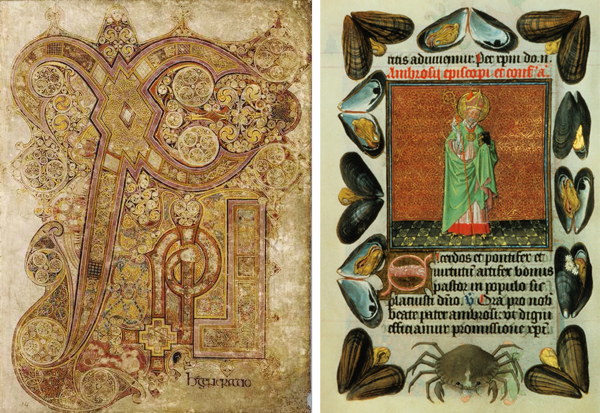The Medieval Book

Before digital technology, before the invention of the printing press, books were written, ornamented, and illuminated by hand, with unsurpassed artistry. This class introduces students to the 1000-year history of the illuminated manuscript in Europe and in Mediterranean lands. We will begin with the invention of the codex in late antiquity and end with the advent of the printed book in the early modern era, thinking all along about the various ways knowledge was transmitted in words and images. Topics include the techniques employed in making manuscripts, the status of scribes and illuminators, and the role played by patrons (royal, aristocratic, religious). The functions of various types of illustrated books (from Bibles to cosmological tracts to Arthurian tales) are examined, as are the principles of medieval book design and ornamentation. Students have the chance to examine original manuscripts in visits to the Rare Book Room. This course not only provides a vivid introduction to medieval art and culture but also offers an opportunity to study an art form in which—as in our modern websites—words and images operate together.
Estimated cost of materials: $0-50.
HISTART Concentration Distributions: D. Europe and the U.S., 2. Medieval
Textbooks/Other Materials: Christopher de Hamel, A History of Illuminated Manuscripts (TBD if it is reprinted and available); Coursepack on Canvas.
Course Requirements: Two tests and 4 short assignments
Intended Audience: undergraduates with an interest in medieval art and history, or in books and book design, or in the transmission and preservation of knowledge over time
Class format: Lecture class
This course fulfills the LS&A Humanities distribution requirement